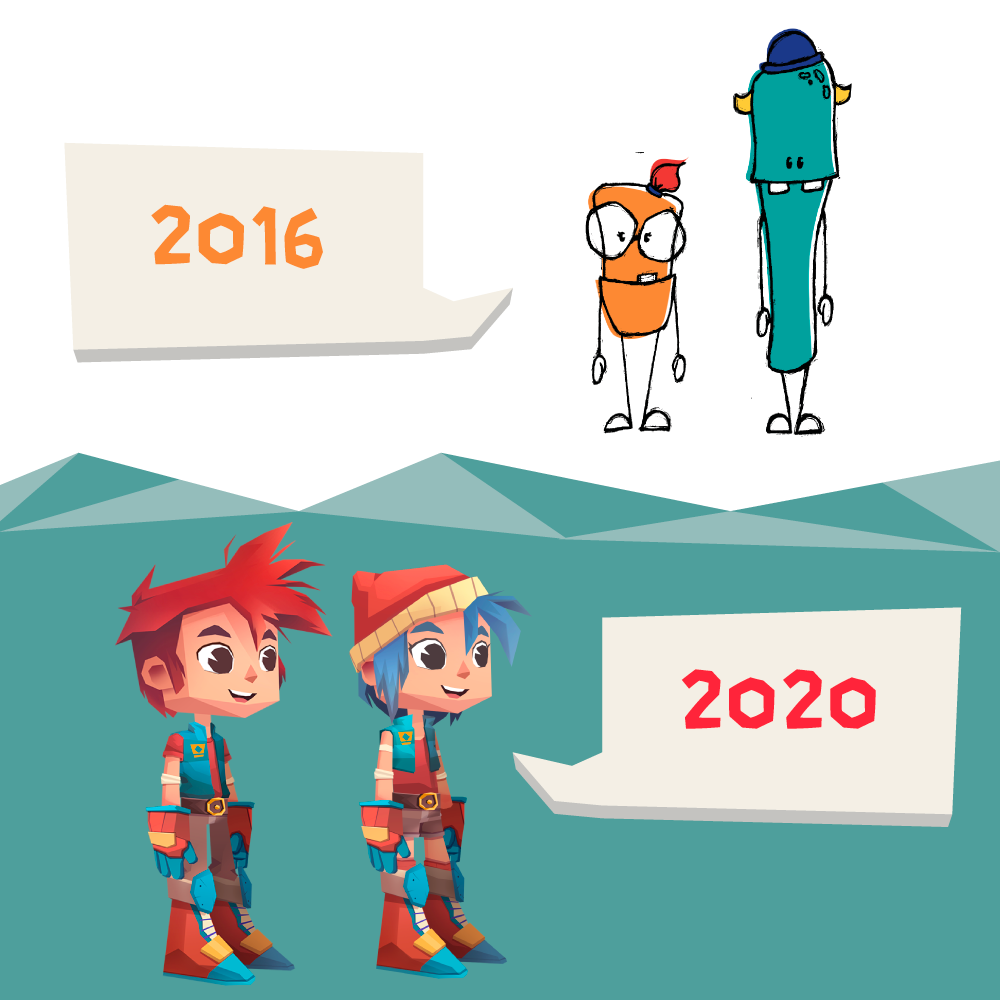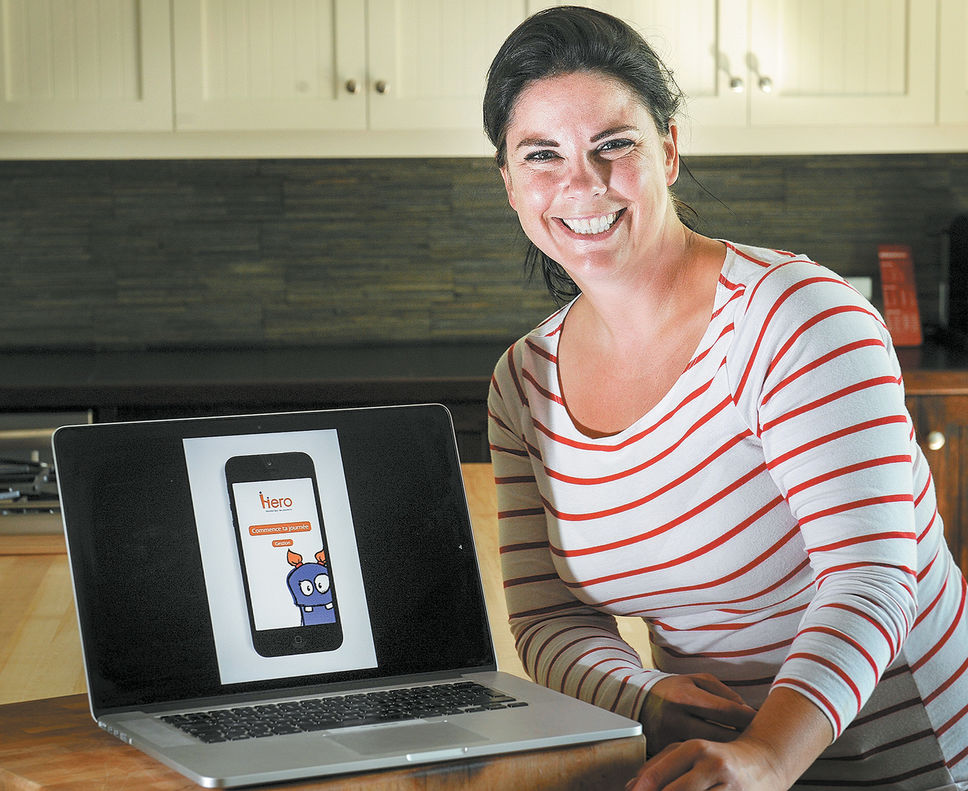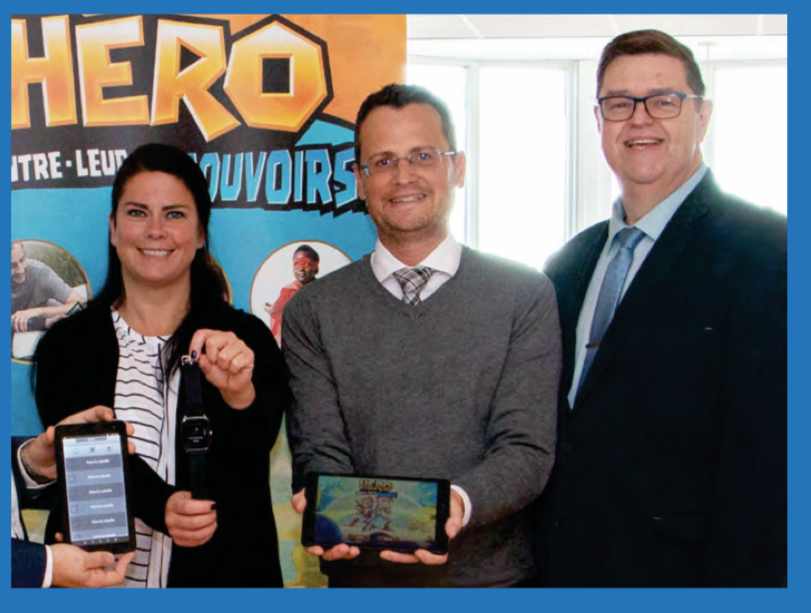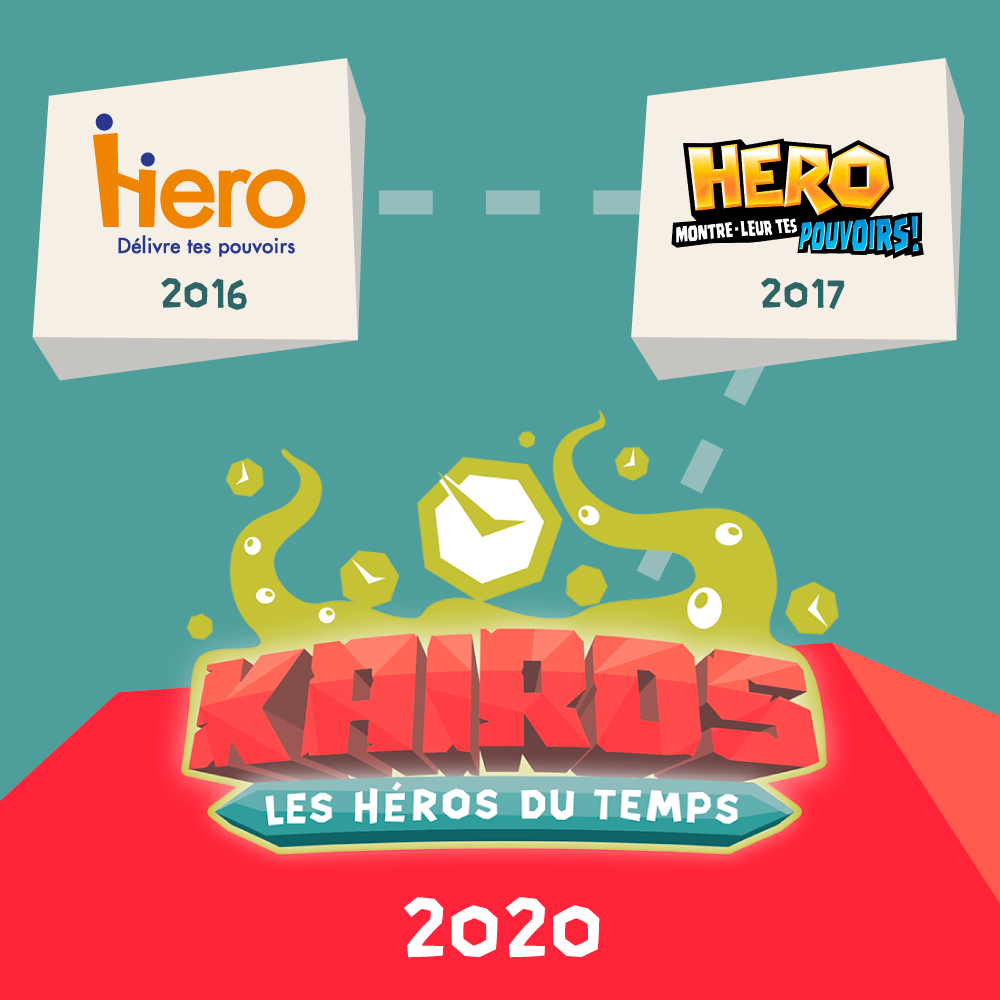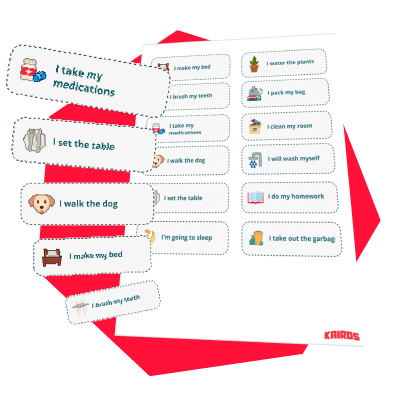Kairos is a great success story, but it is first and foremost the story of an entrepreneur mom who decided to put herself in solution mode to change the lives of millions of families!
Because the journey of our founder Annie is so fascinating, we asked her to tell us more about it.
The source of inspiration: William
It all started in my twenties. I was a single parent with my 10 months old daughter and almost 3 years old son. It wasn't easy! For years, I had my hands full. Fortunately, life has given me great optimism and a strong ability to recover in the most difficult moments, and I am so thankful for it!
From a young age, I quickly noticed that William was not feeling well. I knew separation from his father was not the main cause. The transitions were difficult, he had language difficulties and hypersensitivity. For years, I fought the system to get help to identify the problem.
Getting a diagnosis often takes time! The maze of the system is very complex and sometimes you are tossed from one place to another. We wonder, we question ourselves and the people around us are not always understanding. I have been judged on a regular basis as a mother because of my son’s behavior. I have a great quality, that of being able to question myself. I always seek becoming a better person and William is a great source of motivation to do so!
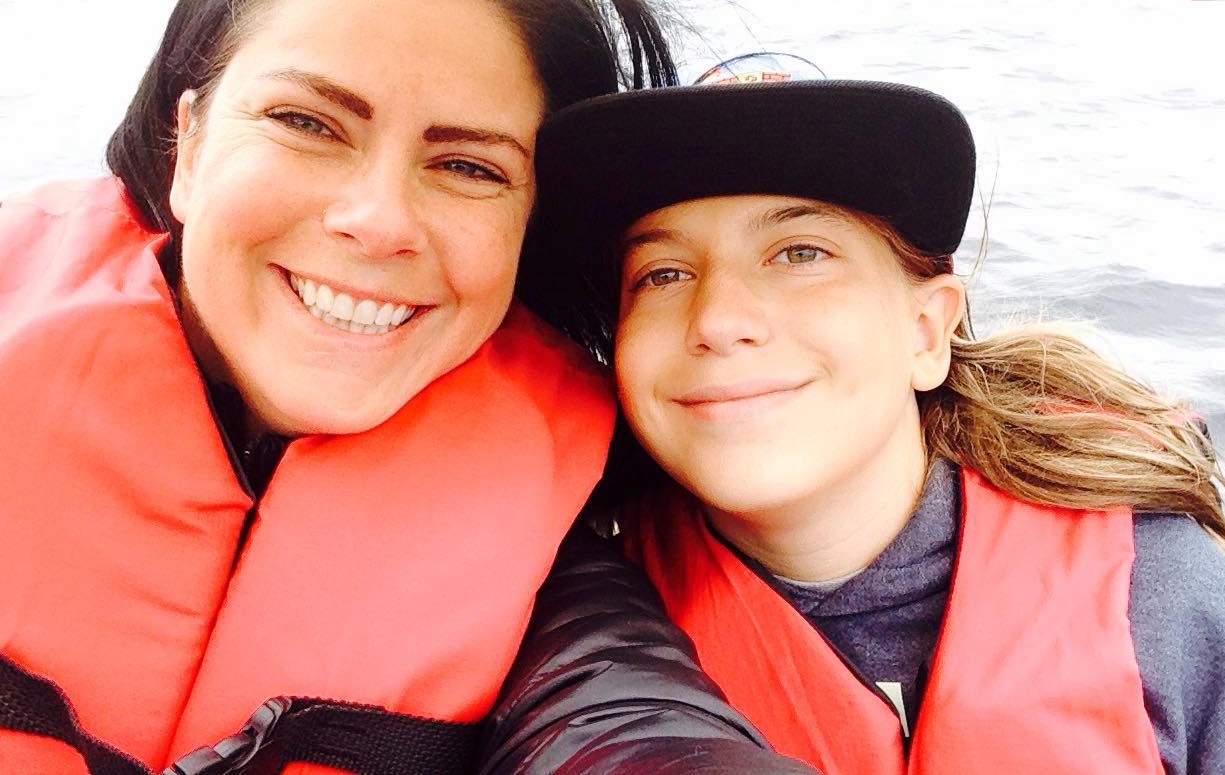
When he was in grade 2, Will was diagnosed with ADHD, like many other kids. It made sense, but I knew there was something else behind his behavior. I thought it couldn’t just be ADHD. Will was a super-bright, quick-witted little boy, but he sometimes had trouble decoding emotions and connecting with others. He did not always understand the sense of humor or figurative sentences. He often threw tantrums and I felt helpless in the face of it all.
It took a suicide attempt when he was 11 years old for doctors to diagnose him with autism spectrum disorder (ASD) associated with ADHD. From that moment on, like all parents who receive a diagnosis, I went into supermom mode to find the solution that would help Will organize himself and develop his autonomy.
The diagnosis allowed me to put myself in solution mode and understand what William was going through. It was a defining moment for him and me.
If you are not familiar with ASD, note that autistic people (not just children) need predictability and stability. They are very attached to their habits and rituals. Therefore, routine is really vital for them: it makes them feel safer and reduces their anxiety.
During my super mom phase, I tried the Time timer, all the emulation boards, all the task management applications and all the positive reinforcement systems possible. I said to myself: the miracle solution certainly exists, I will inevitably come across it.
After a little while, I had to face the facts: nothing was working. A solution could give results for a while and then nothing. I always went back to square one. Will was losing interest quickly despite all his involvement and goodwill at the beginning. However, there was one thing that he was most passionate about: video games!
That’s when the idea emerged. I thought, “If only the routine could be a video game...”.
The birth of the concept
I asked William what he was proposing to make it less painful. We had to face the fact that neither he nor I had fun with routines. I involved him in the search for solutions and decided to evaluate the possibility of including video games. Surprising, as I never allowed the presence of electronics in the routine period! If it was for constructive purposes… why not?
Before pushing my idea further, I went to validate around me if I was the only one who found the routine difficult. Not surprisingly, several parents told me they were in the same situation. Afterwards, I talked about my concept with two undisputed references on ADHD in Quebec: Dr. Annick Vincent and family coach Nancy Doyon. They confirmed that I was on the right track. Then, I presented my project to the National Congress on ADHD and, again, it generated a lot of interest. It gave me the confirmation I needed to take the leap.
At the time of Will’s diagnosis, I had two bachelor’s degrees in my pocket: one in Social Service and the other in Business Administration, and I had accumulated more than 15 years of experience in business development with start-up companies. I worked in the video game industry. I was a partner at Mirum Studio, which is now called Firefolk. One day, I said to the guys on the team: we’re going to create a family video game that’s going to make the routine fun (because being a parent is supposed to be fun and so is being a kid). The team was thrilled and boarded right away!
Originally in 2016, the app was called “Hero - Show them your powers.” For by doing his tasks at the right time, the child became a hero of the time. In addition, the avatar evolved as the routine progressed. If the child did not brush his teeth, the avatar had cavities; if the child did not wash, the avatar smelled bad, etc. You will see that the concept has evolved a lot since then!
Donors: the leverage of the project
2016 was truly a pivotal year! I did a crowdfunding campaign on the La Ruche Québec site and the project was funded at 111%! Wow, needless to say, I was thrilled. The enthusiasm was huge.
In 2017, I joined Groupe Neuro Solutions. And a new project has been added in parallel to Hero: the Ali app (now named Andee), a task assistant for people with intellectual disabilities (ID) or autism spectrum disorder (ASD). As we publish this article (August 2020), this project is under development.
Subsequently, I obtained several other grants: the Canada Media Fund (CMF), Canada Economic Development, Ministère de l'Économie et de l'Innovation, etc. We can say that the project has grown!
Studies: a confirmation of the need
In 2018, the project sought scientific credibility. We tested Hero for the first time with families. A Storm clinical study was conducted in partnership with the Université du Québec à Trois-Rivières (UQTR), Dr. Annick Vincent and the FOCUS clinic. The results were very promising: many parents told us that Hero had literally transformed their daily lives. So we decided to keep moving forward.
From 2019 to 2020, a second, larger study was conducted with 200 families. UQTR, MedteQ and the Fondation les Petits Trésors participated in the project. The study is now complete and the findings will be presented in a few months. Of course, we look forward to receiving the results!
The launch: small project becomes big
We decided to market Hero in late summer 2020, as many families were looking forward to it! In June 2020, the app was revamped to better reflect our dynamic, light and fun style. We also changed the name to Kairos, which is a god of time in Greek mythology. In short, we have made every effort to make our application a success in terms of user experience.
Getting close to the official release of Kairos, I look back at how far we’ve come and I am very, very proud. Proud to have brought together a great team around the same goal. Proud to place technology at the service of families. Proud to have dared to innovate to propose a solution that will please both children and parents. And I look forward to making you discover it. 😉
But you know what makes me even prouder?
It’s to see how William has evolved dramatically since the announcement of his TSA. He has mastered his diagnosis exceptionally well, which is far from easy.
- He developed tactics to better capture the reactions of others.
- He has an incredible sense of humor: the students in his class love him.
- He plays the piano and he’s really talented (I’m not just saying that because I’m his mother haha).
- He has a summer job at the local grocery store.
- He got his scooter license and he is independent in his transport (at least during summer hahaha)
- He even voluntarily decided to stop his medication a year and a half ago because he was fed up with the side effects (loss of appetite, impact on growth and sleep-related difficulties).
In short, he is a teenager with enormous potential who has overcome the difficulties with the tools he was given. I am convinced that his involvement in the search of solutions has really made things easier!
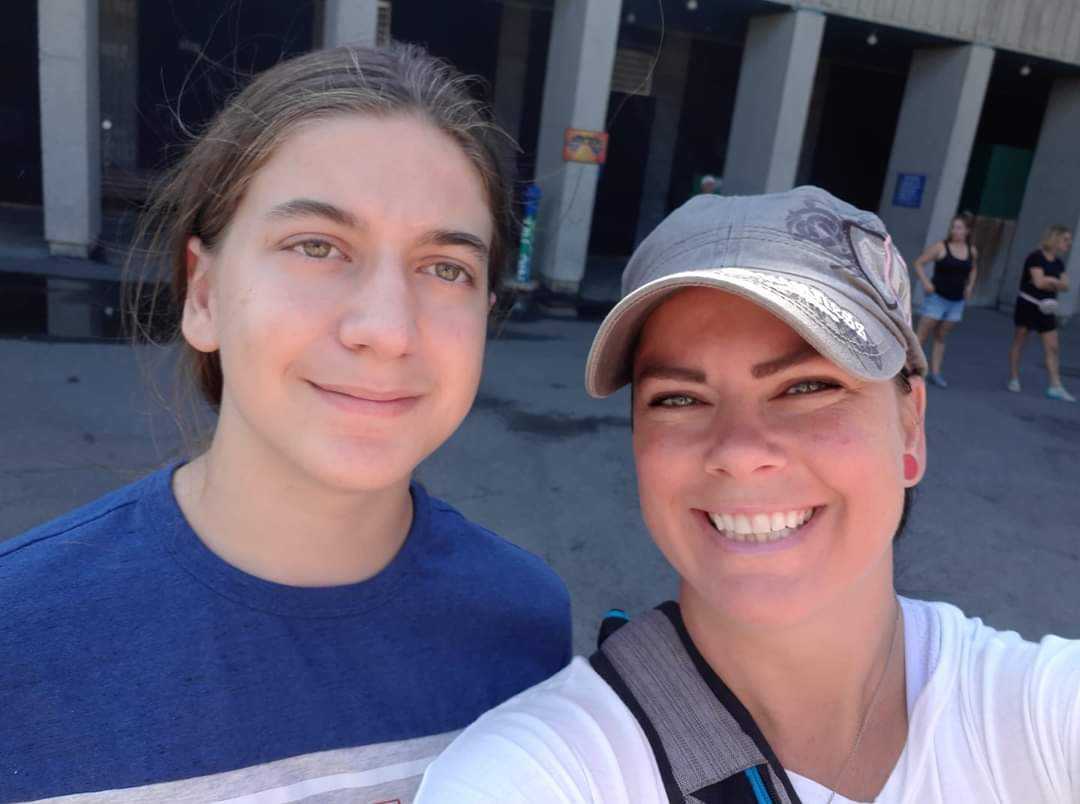
Before you go, I’d like to give you a little homework. If something is not working at home, start by asking your kids if they have any ideas to fix the situation. Listen to your children: they are part of the solution.
If you need an extra hand, Kairos offers you a ton of free resources, like the ultimate children’s routine guide. If you have any questions, please do not hesitate to reach out! We will be happy to help you.
